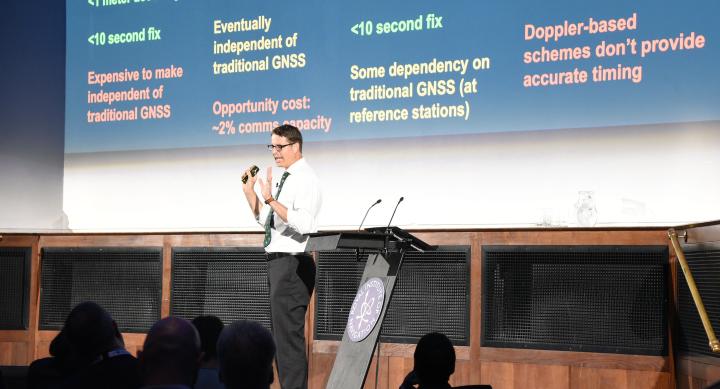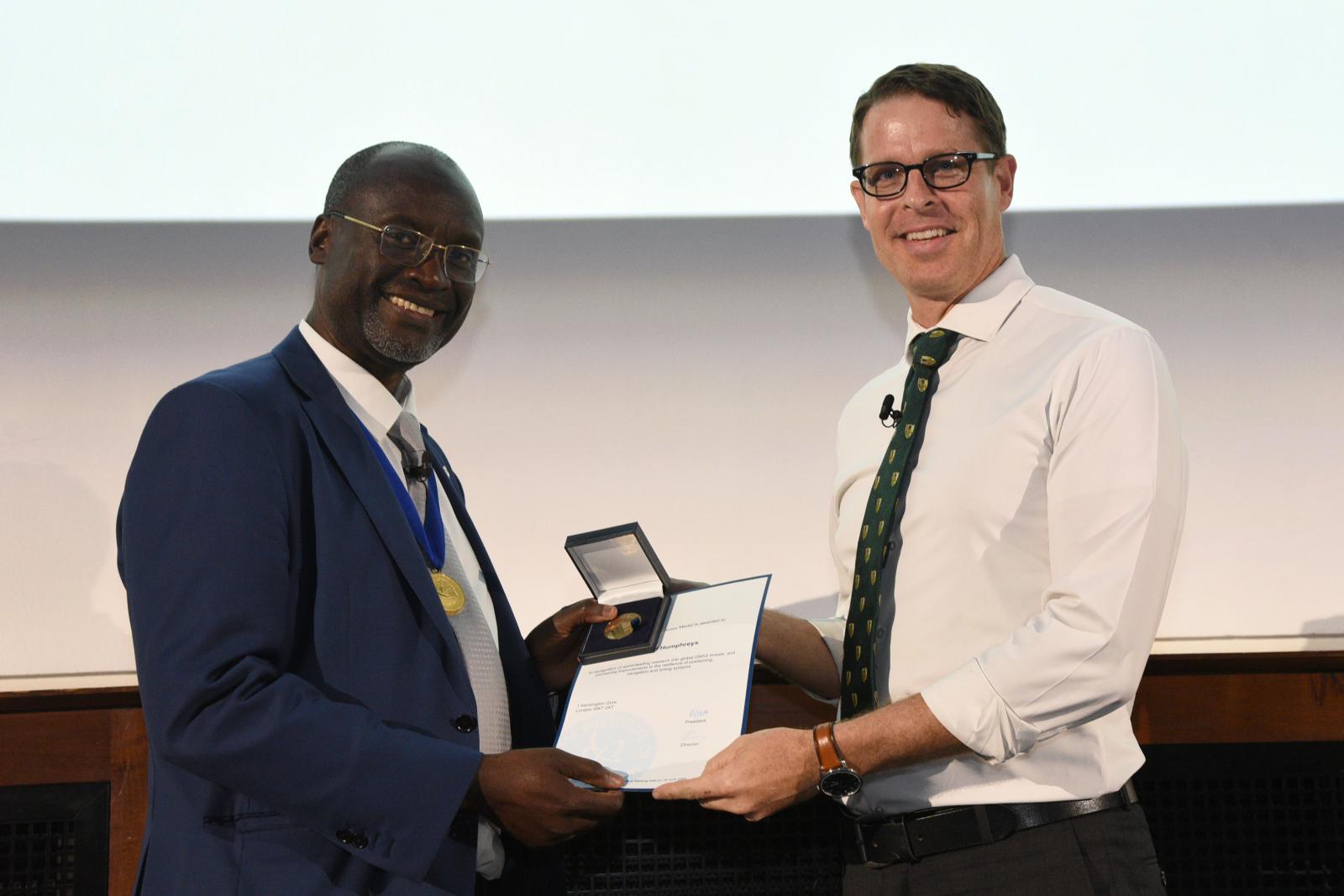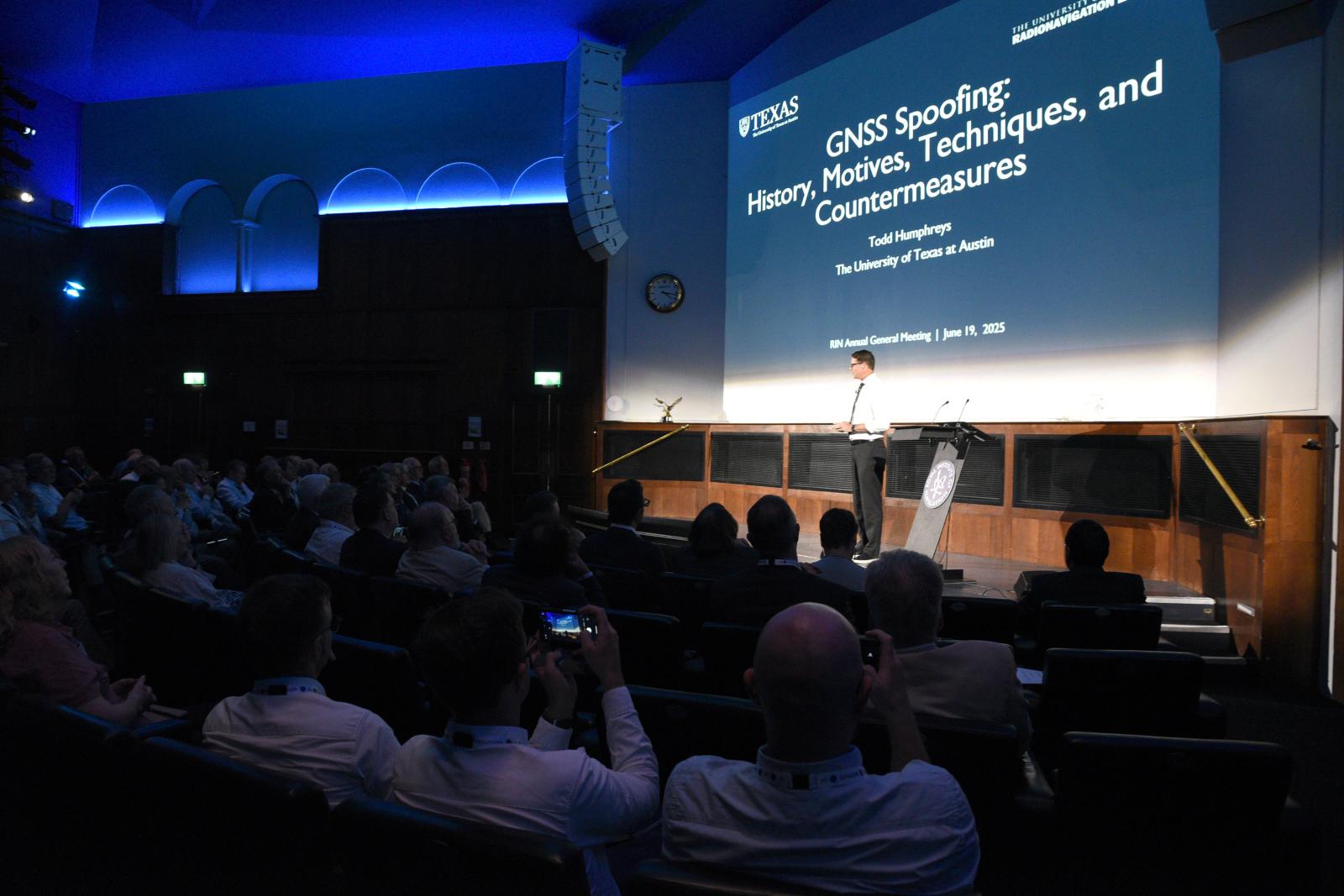
On June 19, 2025, Professor Todd Humphreys received the prestigious Harold Spencer-Jones Gold Medal at the Royal Institute of Navigation’s (RIN) Annual General Meeting, held at the Royal Geographical Society, London. The award was presented by RIN president Washington Yotto Ochieng.
The Harold Spencer-Jones Gold Medal, awarded since 1951, is the highest accolade offered by RIN, and is given in acknowledgement of “an outstanding contribution to navigation.” The citation for Humphreys’ award reads “In recognition of world-leading research into global GNSS threats, and pioneering improvements to the resilience of positioning, navigation, and timing systems.”
Founded in 1947, RIN promotes the understanding and advancement of navigation across land, sea, air, and space. With members in over 60 countries, RIN supports professionals and researchers through knowledge-sharing and innovation in fields like human cognition, navigable cities and buildings, and all domains of the practice of navigation
Humphreys said of his award:
"The first time I was invited to the UK for a Royal Institute of Navigation event back in 2012, I was struck by the technical caliber and camaraderie among RIN members. Since then, I've forged strong ties and friendships with RIN members, whom I hold in high regard. It was thus a special honor to be awarded the RIN's highest accolade this year and to be named among Harold Spencer-Jones Gold Medalists."

Photo caption: Professor Washington Ochieng, current RIN President and recipient of the Harold Spencer-Jones Gold Medal in 2019, pictured presenting Todd at the RIN AGM.
At the meeting, Humphreys delivered a compelling lecture tracing the evolution, motives, methods, and patterns of GNSS spoofing—from early lab experiments to today’s most advanced techniques.
RIN Director, Dr. Ramsey Faragher later remarked on LinkedIn:
“In my twenty years or so of attending Royal Institute of Navigation Annual General Meetings I have never experienced the entire audience gasp in shocked unison. The moment that Todd revealed that a sudden reduction in GNSS signal quality had not just been detected at one ground station, or even just a local collection of ground reference stations simultaneously, but had in fact blanketed all of Europe - in other words, a satellite-based jammer had been detected.”

Humphreys discussed his pending paper, expected to be published in September 2025 here, offering a full analysis of a space-based GNSS jammer whose existence captivated the RIN AGM audience.
Todd E. Humphreys holds the Ashley H. Priddy Centennial Professorship in Engineering in the department of Aerospace Engineering and Engineering Mechanics at The University of Texas at Austin. He is Director of the Wireless Networking and Communications Group and of the UT Radionavigation Laboratory. He specializes in the application of optimal detection and estimation techniques to problems in secure, collaborative, and high-integrity automated situational awareness. His publications are among the most cited in the field of positioning, navigation, and timing.
His awards include the National Science Foundation CAREER Award (2015), the Institute of Navigation Thurlow Award (2015), the IEEE Walter Fried Best Paper Award (2012, 2020, 2023), the Presidential Early Career Award for Scientists and Engineers (PECASE, via NSF, 2019), and the Institute of Navigation Kepler Award (2023). He has been a Fellow of the Institute of Navigation and of the Royal Institute of Navigation since 2021. He earned his B.S. and M.S. in Electrical and Computer Engineering from Utah State University, and his Ph.D. in Aerospace Engineering from Cornell University.